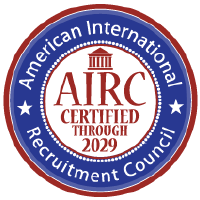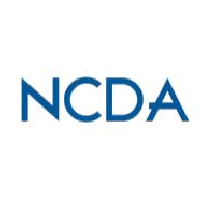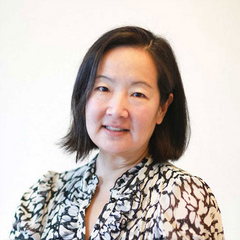
微信客服
wholerenguru3 (厚仁学术哥)
我们可能都听过“间隔年gap year”(指学生在上大学前请假),但“休学”比较鲜为人知。“休学”一词源于“辍学” ,但“休学”更多是指学生认为大学在目前阶段不适合自己,因而主动选择离开大学一段时间。

近期由于新冠疫情、移民政策变化、旅行限制等给留学美国带来许多不确定性,你可能会考虑暂时休学一段时间。本文列举出6个重要提醒,在你决定休学/间隔年之前,一定要花时间了解,不然很有可能造成不可挽救的损失。
1. 休学不要变辍学
休学是有“危险”的,有人可能会说这只是离大学辍学又近了一步。这种担忧的确是真实存在的,因为每年有超过100万的大学生辍学,大学新生中有近1/3在大二前辍学,亚裔学生辍学率为10-35% ,这取决于学校的类型。
2. 休学/退学政策要清楚
如果你决定从大学休学,你必须在决定之前咨询你的学校。大学对想要休学的学生有单独的休学和退学政策,在考虑休学之前充分理解这些政策是很重要的。例如,芝加哥大学的政策是“有时间限制的” ,在特定时间后还没有返校就会当作正式退学。纽约大学也限制学生离校时间,并补充说,如果注册截止日期已过,学生不能复学。
3. 返校规定要了解
有的大学提供较为宽松的返校协议,有的则可能不允许。有些大学允许学生休学两年后重新注册,没有任何麻烦。然而,其他学校可能需要满足复学要求,重新填写申请表,并与学校领导进行对话。例如,卫斯理学院表示学生的重新入学申请会被学术审查委员会审议。迈阿密大学和东卡罗来纳大学要求学生在缺课一个学期后需要提交重新入学申请,并支付一笔单独的申请费用。
不了解返校政策和错过最后期限可能导致学业进一步推迟,以及返校后大学宿舍选择受限,更重要的是,学校并不一定要录取休学生。因此,尽管你可能想在一个学期后重返学业,但学校可能不允许你这么做。例如,普渡大学表示学生的返校日期取决于学期安排和时间安排。加利福尼亚大学伯克利分校的政策规定,不能保证再次录取。我们听说过至少有一所学校明确表示,不会保证由于疫情而选择休学者能重新录取,因此我们鼓励你在离开学校之前充分了解学校的政策。
4. 知识和习惯不能落下
如果没有做好中途退学的准备,一些中途放弃学业的学生在返校后会发现很难重新养成良好的学习习惯。而且,如果学校认为学生离开课堂时间过长,可能会要求重修以前的课程,导致最终增加成本和时间。
5. 学术政策规定要跟上
此外,大部分学校都不会主动联系处于休学中的学生。而在你休学期间,学术政策、要求、时间安排和规章制度都有可能发生改变,你有责任知道这些变化。同样,如果你在休学之前有奖学金,也不能保证在你返校之后依然享有。例如,在罗彻斯特理工学院,奖学金将会被返还给学校。
6. 休学变成彻底休息放松,万万不可取
休学以后打算做什么,也是需要考虑的重要问题。打算休学但却没有具体计划,在这个特殊时期是很不明智的。全球经济受到疫情影响,工作机会比往年要更难得。最近许多学生想要做志愿者,机会也少的可怜——即使想要提供“免费劳动力”,可能也没有什么好机会。因此,如果你因疫情影响正在计划休学,且希望在此期间工作或者做志愿者,那么你一定要在提交休学申请之前确认关于工作的计划行得通。
综上,中途休学,只要不会导致辍学,对学生来说是有益的,因为这意味着有时间成长、成熟,并有机会实践在课堂上学到的东西。但是在真正做决定之前,一定要思虑成熟,并接受必要的指导和规划,以便在返校时不出任何意外。
英文原文:
Although most of us might be familiar with the term gap year (when a student takes time off before starting college), the term “stopout” is much less familiar within the field of higher education. While derived from “dropout”, the term “stopout” is used when a student decides college is not working out for them at a certain period of time in their life. Students will then decide to take some time off from college.
With all the uncertainties surrounding studying in the U.S. (e.g, COVID-19, immigration policy changes, difficulty in traveling), you may be considering taking time off from your college. Even prior to the current situation we face, one study found that among community college students — which make up 45% of undergraduates — 94% stopout at least once, with male students more likely to stopout.
There are ‘dangers’ to being a stopout and one could argue this is just one step closer to being a college dropout. This is a real concern as more than 1 million college students drop out each year with nearly ⅓ of college freshmen dropping out before sophomore year, and Asian students dropout at a rate of 10-35%, depending on type of institution.
If you are deciding to take time off from college, you must consult with your school officials before just deciding to not enroll in classes or not return. Colleges have individual leave of absence and withdrawal policies for students who want to take time off and it is important to fully understand these policies before considering time away. For example, the University of Chicago’s policy is ‘time limited’, allowing for students to be away for a specific amount of time before they are official withdrawn from the school. New York University also limits time away, also adding that students cannot be reinstated if registration deadlines have passed.
While some colleges may allow students to return easily, others may not. Some colleges allow students to re-enroll after two years off with no hassle. Other schools, however, may have readmission requirements with forms to complete, along with conversations to be had with school officials. For example, Wellesley College states their requests for readmission are considered by their Academic Review Board and thus, we do not know if it is a simple readmission process or a more complex one. The University of Miami and East Carolina University require students to submit an application for readmission and pay a fee after missing only one semester of school.
Not understanding the return policy and missing deadlines could lead to further postponement of studies along with limited college housing options upon return, and more importantly, schools do not have to readmit students who take time off. Thus, while you might want to return to your studies after one semester, the school may not permit you to. For example, Purdue states that a student’s return date is subject to term scheduling and availability. The University of California Berkeley’s policy specifies that readmission and reenrollment is not guaranteed. We have heard of at least one school which will not guarantee specific time of readmission after a stopout due to COVID-19 and thus we encourage you to fully understand your school’s policy for return before you take time away.
If unprepared for their stopout, some students who walk away from academic studies will find it more difficult to re-engage in good study habits when they return. Additionally, depending on time away, a school may require students to re-take previous courses if they believe the time way from specific academic knowledge has been too long — adding both more cost and time to completing a degree.
Additionally, most schools do not proactively engage their students who have taken leave. Academic policies, requirements, timelines, and regulations can all change quickly while you are on leave, and the onus will be on you to know these changes, despite taking time off. Similarly, if you had scholarship funds prior to taking time away, there is no guarantee that those funds will still be available to you upon your return. For example, at the Rochester Institute of Technology, school scholarship funds will be returned to the school.
The question of what you will do if you stopout is also important to consider. Taking time off without concrete plans of what you will do if you are not studying is ill-advised at this time. Global economies have been affected by COVID-19, and jobs may not be readily available. We recently learned that although many of our rising high school seniors want to volunteer and help others, the opportunities have been severely limited due to COVID-19–even offering this “free labor” is not an option. Thus, if you had planned to take time off of school due to COVID-19 and hoped to work or volunteer, those plans should be confirmed before you file the paperwork to take time off of your studies.
Stopouts, so long as they do not lead to dropping out, could be beneficial to a student as it can mean time to grow, mature and appreciate what they can learn in the classroom. However, they should be considered and approached with guidance and planning so that there are no unexpected surprises when returning to school.
美国招生协会
AIRC权威认证
80位
美国双语导师
10年+
名校申请经验
8600+
名校名企录取

微信客服
wholerenguru3 (厚仁学术哥)

AIRC 权威认证

ICEF 权威认证

NCDA 权威认证





















